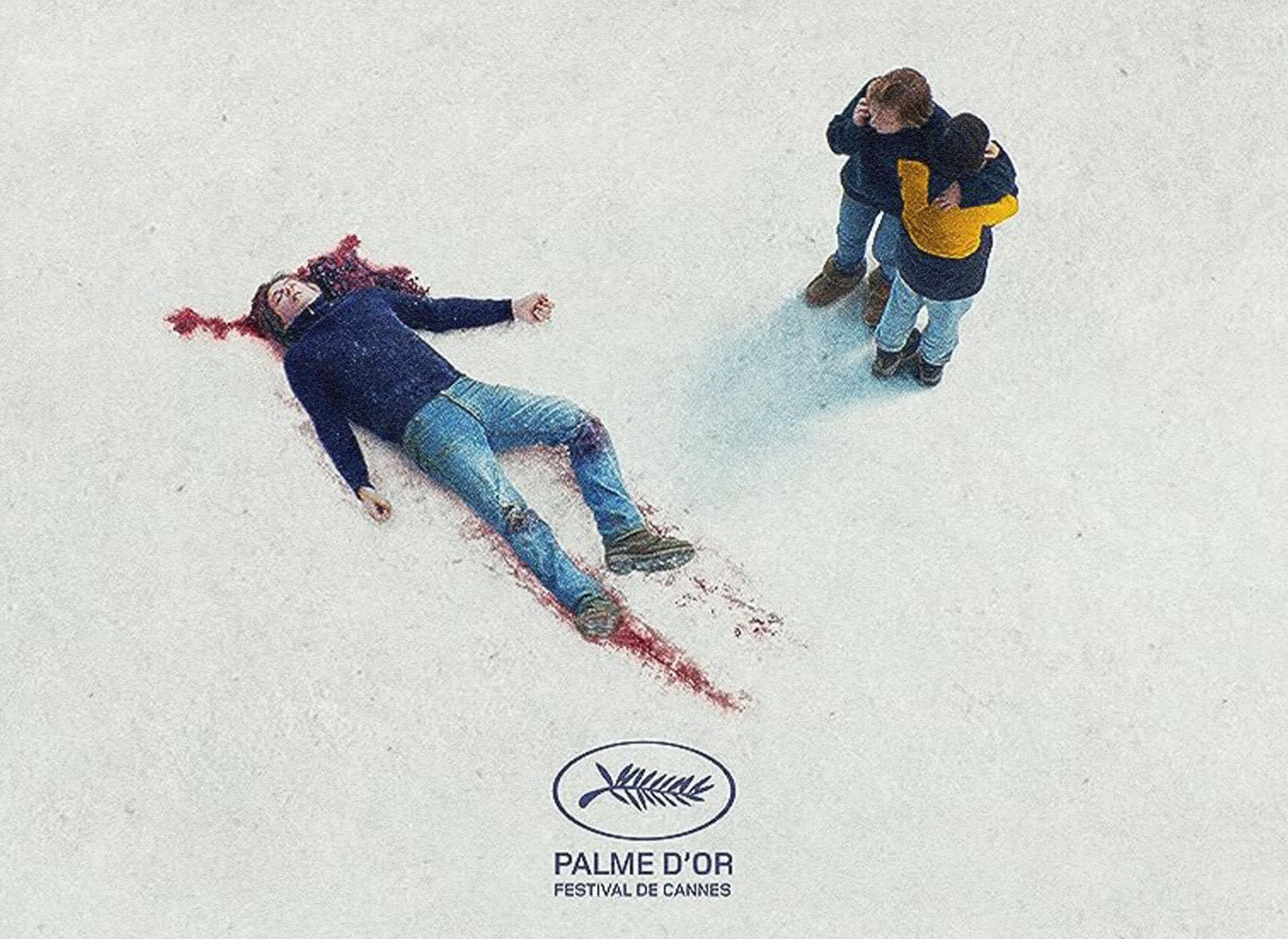
Film Review: Anatomy of a Fall
The winner of this year’s Cannes Film Festival probes the limits of the legal system and the ethics of true crime.
Sandra Voyter (Sandra Hüller) is well-known enough. The renowned author of thinly disguised literary fiction has carved out her space among France’s men of letters. She’s a German expat still coping with the tragedy that befell her family when her only son, Daniel (Milo Machado Graner), lost his sight after a freak traffic accident involving a motorcycle. But then her husband, Samuel, (Samuel Theis), takes a life-ending tumble from the attic window of their perpetually under-renovation chalet in the French Alps.
Now, Voyter is the most famous woman in France, a too-successful interloper whose literary gifts may make her a real-life femme fatale—trumping any notoriety she could have aspired to in her chosen profession. So begins Justine Triet’s Anatomy of Fall, the winner of this year’s Palme d'Or at Cannes.
As only the third woman to take the top prize at the world’s most prestigious film festival, Triet made headlines for besting a boys’ club that included cinematic luminaries like Wes Anderson, Todd Haynes, and Ken Loach. But Anatomy of a Fall, despite the tenor of many of its reviews, is not a simplistic treatise on the battle of the sexes catering to “the future of film is female” diatribes. It’s a masterful thriller that bridges Hitchcock’s narrative restraint with the emotional weight of Ingmar’s Bergman’s greatest marriage stories that also navigates the ethical implications resulting from the glut of crime procedural programming ready-made for mindless binging.
When NPR’s Serial and Netflix’s Making a Murderer tapped into the pop-culture zeitgeist almost a decade ago, they ushered in a cottage industry of cheaply produced nonfiction television awash in sensationalism that, as SNL so memorably put it, became synonymous with upper-middle-class guilty pleasure. While the same white suburban women who rebuffed Trump for his tawdriness devoured the endless programming fledging streamers peddled about South Carolina’s Murdaugh dynasty or the Heaven’s Gate cult, the consequences of such prepackaged violence becoming the last lingering threads of our common cultural fabric remained largely uninterrogated.
With the exception of Quentin Tarantino, American filmmakers have long abandoned ruminating on the intersections of violence and entertainment, opting instead to focus on revisionist histories or exercises in nostalgia. But there’s something profound to be said about wine moms fresh from a Target run consuming sensationalized and shallow depictions of the Western world’s most depraved crimes. Thankfully, a filmmaker like Triet, who is fully in command of her craft, has offered a corrective for this blind spot.
Anatomy of a Fall’s brilliance lies in Triet’s impeccable construction of a compelling murder mystery. The film works so well as a procedural that its U.S. distributor, Neon, has embarked on a viral publicity campaign to generate buzz through the creation of the website didshedoit.com, a marketing gimmick that seems at odds with the corporate ethos of the company that brought Cannes and Oscar winner Parasite to American screens. Triet and her co-writer Arthur Harari have crafted an intricate screenplay that serves as catnip for crime drama devotees as it crosscuts between Voyter’s trial and her private unraveling while slowly revealing information that alters perceptions of her presumed guilt.
Yet, as it builds tension to nearly unbearable levels, it also deconstructs the conventions that have made the current moment’s avalanche of crime content so addicting. While the genre typically places viewers in positions of superiority and relies on cultivating their contempt to keep them coming back for more, Triet baits her audience into looking down on Sandra before implicating it for egging on the downfall of an accomplished working mother. Resulting from a critical mass of anti-intellectual sentiment and class envy, Sandra’s fall from grace should be pure schadenfreude. But as Triet exposes the family’s financial difficulties and compulsion to maintain their social position within the refined creative class, she lays bare the pretensions of viewers drawn to the genre to feel better about their own predicaments.
Not content with merely cementing its status as one of the thematically rich crime narratives in recent memory, Anatomy of a Fall is also a portrait of marital breakdown unafraid to examine the budding resentment of couples drawn together by their artistic passions but unable to reconcile the talent disparity between them. In a film centered on a violent act, the most gutting moment comes during a recorded argument introduced as evidence in which the couple unloads years of grievances that their dedication to chasing the spoils of the cultural elite has led them to repress.
As Triet’s film eradicates the couple’s facade, the line between public and private also collapses. It’s a moment of intimacy we should never have heard, a moment we’ve all had, and the moment that could turn anyone into the subject of a shoddily made Netflix show that the socially awkward mainline as they try to make whatever superficial connection with others they can the morning after. Triet wants us embarrassed. And we should be.
Anatomy of a Fall opens at AMC Thoroughbred 20 and the Belcourt this Friday.
